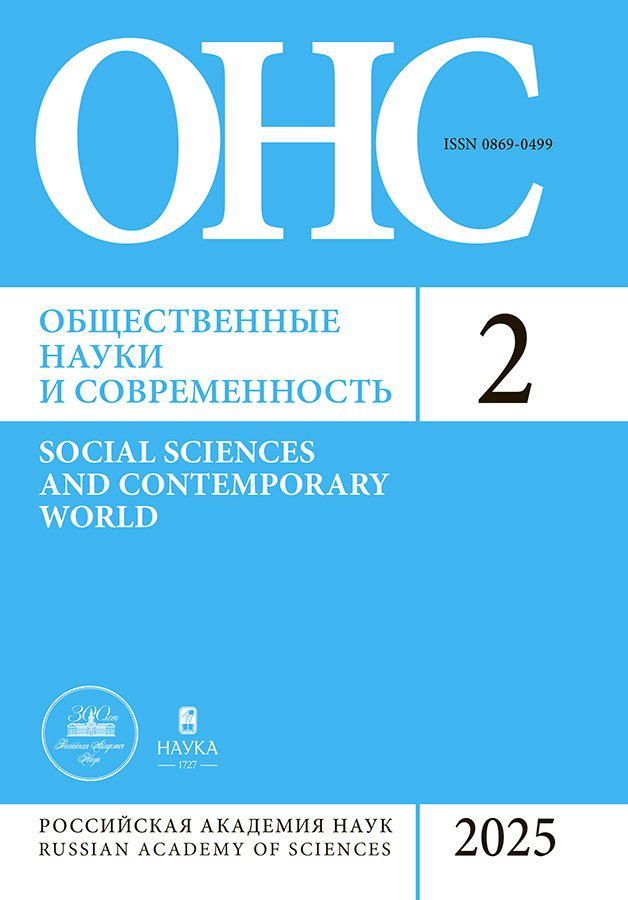J. Biden administration’s course to rebuild Euro-Atlantic solidarity
- Authors: Bubnova N.I.1
-
Affiliations:
- Primakov Institute of World Economy and International Relations of the Russian Academy of Sciences
- Issue: No 2 (2025)
- Pages: 62–75
- Section: Политические исследования
- URL: https://ruspoj.com/0869-0499/article/view/687976
- DOI: https://doi.org/10.31857/S0869049925020056
- EDN: https://elibrary.ru/JAHCRS
- ID: 687976
Cite item
Abstract
The article is devoted to the efforts implemented by the Democratic administration of U.S. President Joe Biden to strengthen NATO and the ties within the organization. The strategic documents adopted by Washington and its practical steps taken for these purposes are analyzed. The efforts of the American leadership under Joe Biden and Kamala Harris to implement the declared course towards NATO consolidation are considered in several main aspects, i.e.: the rapprochement and divergences between the allied countries and the development of the alliance’s new global posturing; their joint military and political measures to counter Russia after the start of its special military operation; the pursuit of further NATO expansion by admitting Finland and Sweden; and the influence of the U.S. election campaign on Washington’s policy towards NATO. The line of the Democratic administration to strengthen ties with the allies is analyzed in juxtaposition to the actions and statements of the Republican leader Donald Trump, both during the election campaign and after his victory in the elections. The piece examines changes in NATO strategy defined by its confrontation with Russia and the efforts of the alliance’s members to ensure the organization’s sustainability regardless of political and financial developments due to the political transition in Washington.
Full Text
About the authors
Natalia I. Bubnova
Primakov Institute of World Economy and International Relations of the Russian Academy of Sciences
Author for correspondence.
Email: nataliaibubnova@gmail.com
ORCID iD: 0000-0002-1434-4133
Candidate of Sciences (History), Leading Research Fellow
Russian Federation, 117997, 23, Profsoyuznaya str., MoscowReferences
- Бубнова Н.И. (2023) Военная помощь США и других западных стран Украине после начала российской специальной военной операции // Россия и современный мир. № 2. С. 79–105. https://doi.org/10.31249/rsm/2023.02.06/ Bubnova N.I. (2023) U.S. and other Western countries’ military assistance to Ukraine after the beginning of Russia’s special military operation. Russia and the Contemporary World, no. 2, pp. 79–105. https://doi.org/10.31249/rsm/2023.02.06 (In Russ.)
- Бубнова Н.И. (2022) Вывод американских войск из Афганистана и политика Вашингтона: что пошло не так? // Россия и современный мир. № 4. С. 72–93. https://doi.org/10.31249/rsm/2022.03.05/ Bubnova N.I. (2022) The withdrawal of U.S. forces from Afghanistan and American policy: What went wrong? Russia and the Contemporary World, no. 3, pp. 72–93. https://doi.org/10.31249/rsm/2022.03.05 (In Russ.)
- Кривопалов А.А. (2024) Южный фланг американского развертывания в Восточной Европе // Мировая экономика и международные отношения. 2024. Том 68, № 7. С. 25–34./Krivopalov А.А. (2024) Southern flank of the U.S. military deployment in Eastern Europe. World Economy and International Relations, vol. 68, no. 7, pp. 25–34.
- Beck R. (2024) Bidenism Abroad // New Left Review. March/April.
- Biden J.R. (2020) Why America Must Lead Again? Rescuing U.S. Foreign Policy After Trump // Foreign Affairs. January.
- Foer F. (2023) The Last Politician. Inside Joe Biden’s White House and the Struggle for America’s Future. New York: Penguin Press. 414 p.
- Mazarr M.J., Ke I. (2024) Integrated Deterrence as a Defense Planning Concept. Perspective. Rand Corporation. June. 36 p.
- Stelzenmüller C. (2021) Germany is Pouring Cold Water on the Biden-Europe Love Fest // Foreign Policy. 22 January 2021.
- Ward A. (2024) The Internationalists: The Fight to Restore American Foreign Policy After Trump. New York: Portfolio/Penguin. 354 p.
Supplementary files










